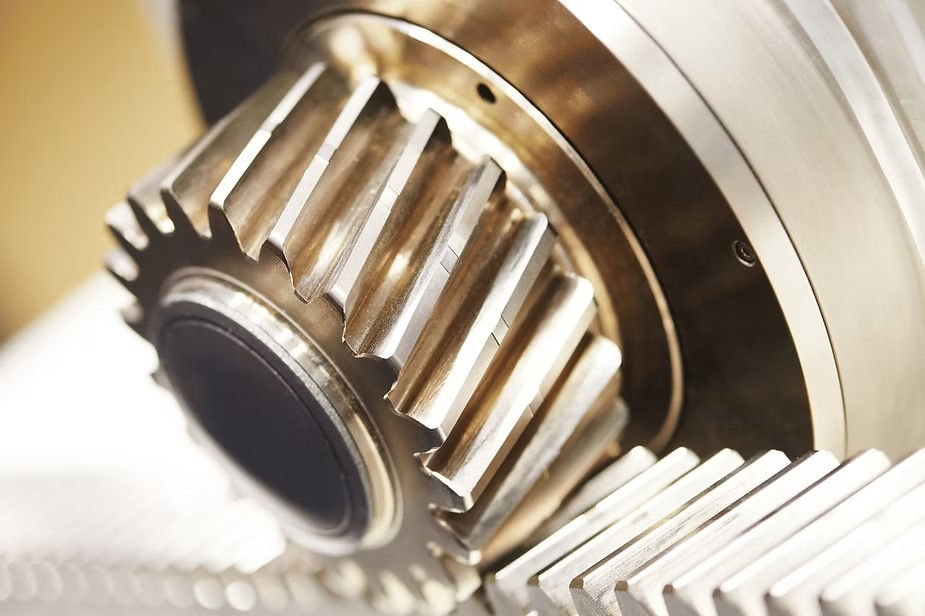The Role of Machining in Aerospace Industry
- magsonssakhib
- Apr 22, 2023
- 3 min read
Updated: Oct 28, 2024
Machining is an essential process in the aerospace industry. It involves the removal of material from a workpiece to create the desired shape and size. Machining is used to create critical components such as engine parts, landing gear, and wings. In this comprehensive guide, we will explore the role of machining in the aerospace industry and how it is used to create high-quality, reliable components for aircraft.
1. Importance of Precision
Precision is essential in the aerospace industry as even the slightest deviation from the required specifications can result in catastrophic consequences. Machining plays a vital role in achieving the required level of precision. Machining allows for the creation of complex shapes and sizes with a high level of accuracy, ensuring that critical components meet the required specifications.
2. Use of Advanced Materials
The aerospace industry relies heavily on advanced materials such as composites, titanium, and aluminum alloys. These materials offer improved strength and weight characteristics, making them ideal for use in aircraft components. However, these materials can be challenging to machine due to their hardness and toughness. Machining allows for the precise shaping of these materials, enabling the creation of reliable, high-quality components.
3. Compliance with Regulations
The aerospace industry is highly regulated, with strict standards and regulations governing the manufacturing of aircraft components. Machining plays a vital role in ensuring compliance with these regulations. Machining processes are carefully monitored and controlled to ensure that components meet the required specifications and are safe for use in aircraft.
4. Quality Control
Quality control is essential in the aerospace industry, as even the smallest defects can have severe consequences. Machining allows for the creation of high-quality components with a high level of accuracy and precision. Machining processes are closely monitored and controlled, with quality control checks at every stage of the process to ensure that components meet the required specifications.
5. Cost-Effective Manufacturing
The aerospace industry is highly competitive, and cost-effective manufacturing is essential. Machining allows for the creation of high-quality components at a reasonable cost. Machining processes are optimized to reduce waste and improve efficiency, resulting in lower costs and faster turnaround times.
6. Importance of Tooling
Tooling is essential in the machining process, and it plays a vital role in the aerospace industry. The aerospace industry requires specialized tooling to machine advanced materials and create complex shapes and sizes. Tooling is carefully selected to ensure that it is suitable for the specific machining process and materials being used.
7. Importance of Machining Process Optimization
Machining process optimization is critical in the aerospace industry, as even small improvements in efficiency can result in significant cost savings. Machining processes are carefully analyzed and optimized to ensure that they are as efficient as possible, reducing waste and improving productivity.
8. Importance of Research and Development
Research and development are critical in the aerospace industry, and machining plays a vital role in the development of new aircraft components. Machining processes are continually evolving, and new technologies are being developed to improve the efficiency and accuracy of machining processes.
9. Importance of Training and Skills Development
Skilled operators are essential in the aerospace industry, and training and skills development are critical to ensuring that machining processes are carried out safely and efficiently. Machining requires a high level of skill and expertise, and operators must be trained to use specialized equipment and tools safely.
Conclusion
Machining plays a vital role in the aerospace industry, enabling the creation of high-quality, reliable components for aircraft. Machining processes are carefully monitored and controlled to ensure compliance with regulations and to achieve the required level of precision and accuracy. The aerospace industry relies heavily on advanced materials, and machining plays a critical role in shaping these materials into the required shapes and sizes. Machining is essential to cost-effective manufacturing and plays a vital role in the development of new aircraft components. Skilled operators are essential in the machining process.







Comments